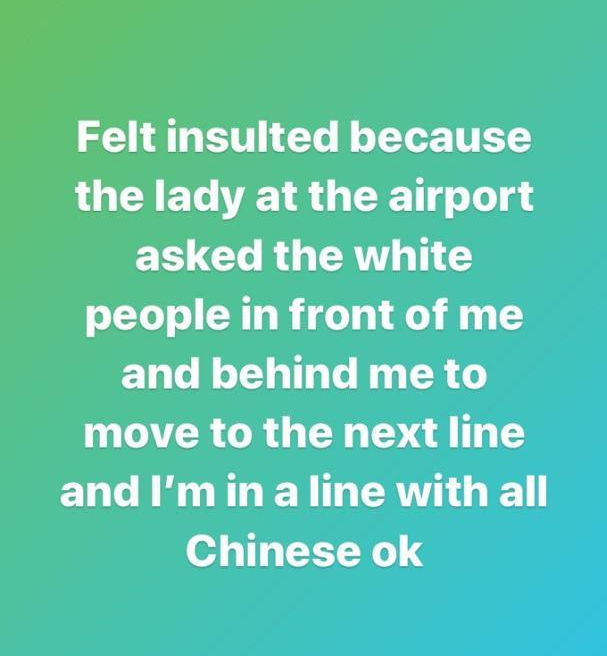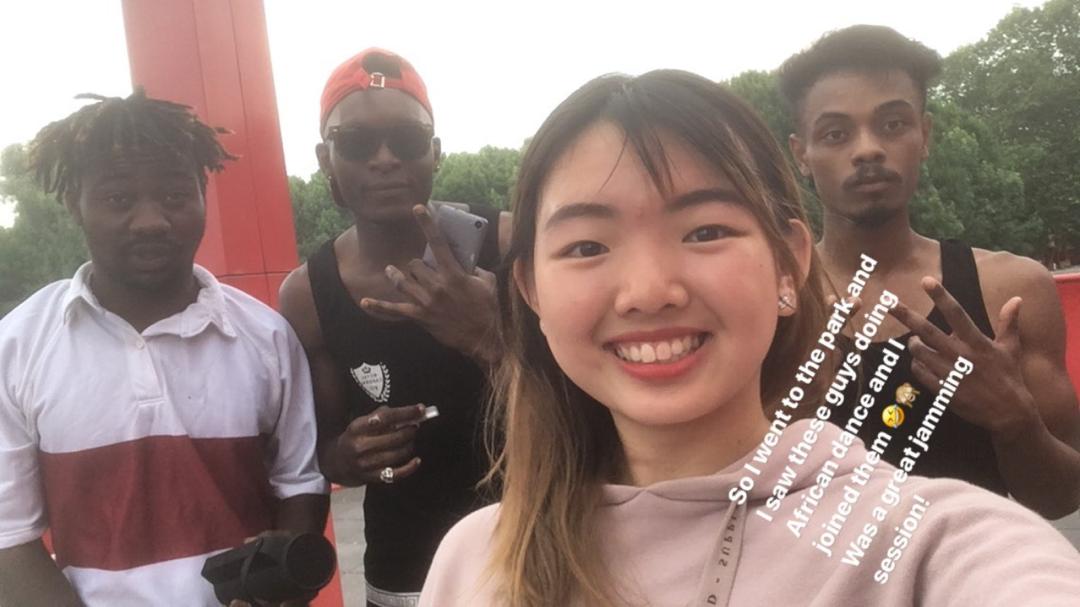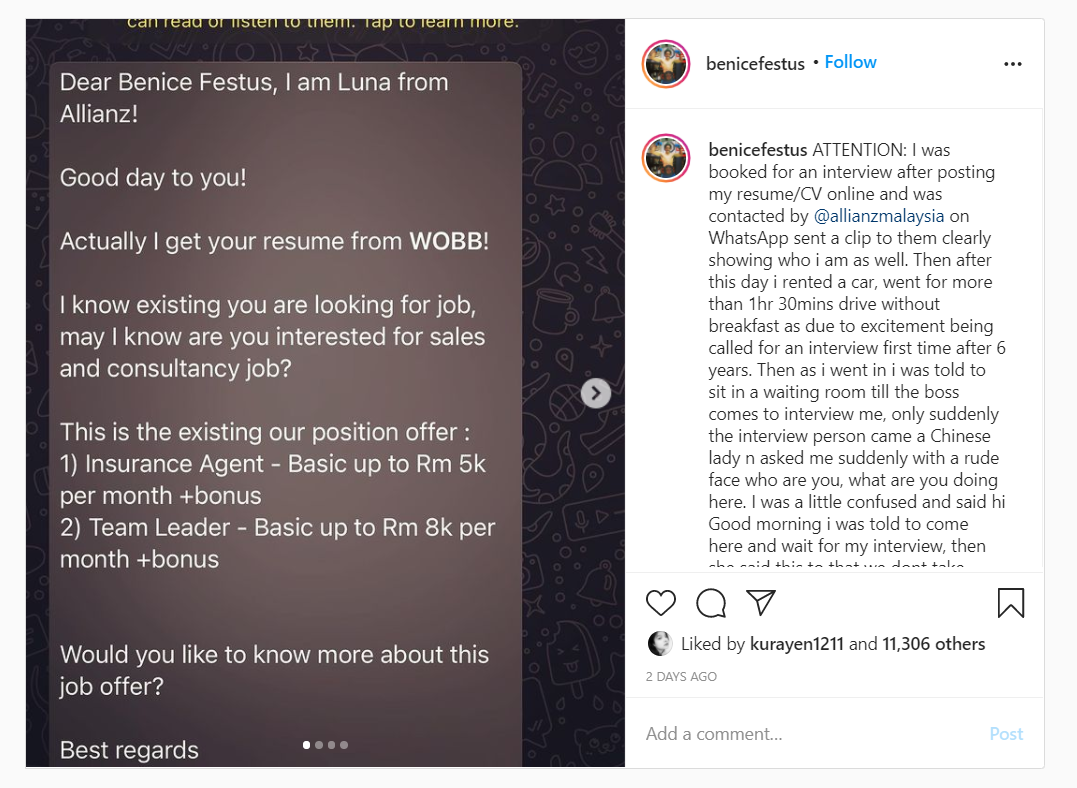I want to urge everyone to look at racism in a much broader context, not just against the black, but against the ‘colored’; outside America, and deep into our daily lives.
 Me, months ago, at the Glasgow airport.
Me, months ago, at the Glasgow airport.
Racism comes in many forms. It can be violent. It can be silent.
It is physical attacks against individuals for their races.
It is political oppression toward an ethnicity.
It is cultural misappropriation.
It is the denial of job opportunities for their skin colors.
It is calling names and labeling individuals for their skin tone.
It is that one disgusted eye glance towards an individual for his or her race.
Having stayed for a short period of time in 3 different countries in the past 4 years, I’d like to express my perspective on racism.
I’ve had a fair amount of encounters with racism. But I’m not going to be the saint here. I might have biased judgements on races that I’m not aware of. I’m constantly self-reflecting and challenging these thoughts through my actions.
When I was traveling alone in Paris, I went to a park in an area that was immigrant-populated. I saw some African guys dancing in a circle. I wanted to join but I was scared. There were many stereotypes about immigrants in France. So I stood there watching them for over 30 minutes. And then I finally gained courage and approached them.
We ended up dancing the whole evening. It was a lot of fun, despite the language barrier. Some of them were actually studying in a dance school in Paris. Honestly, I’m embarrassed that I’m actually proud of this. I apologize for the side of me with stereotypical mindset.

When I was living in Las Vegas, I did not encounter any racism nor heard of such cases. However, I am in no place to deny that racism exists there. I don’t know how bad others might have had it, but my experience in Las Vegas was actually great.
Las Vegas is very diverse. There are many immigrants who came from all over the world: Brazil, China, Italy, Germany, United Kingdom, Taiwan, etc. And honestly, to my disappointment, I wasn’t that special coming from Malaysia as an exchange student in my American high school. Nobody was curious about my culture. They were simply amazed by my math skill.

Moving on to my 3-months journey in Italy. It was an eye-opener. I actually dedicated an entire post on my experience in Italy related to racism. If you’re interested: Being an Asian in Italy.
The crazy thing is, when I told my friends about the incidents I had faced, they would just shrug me off and say ‘just ignore the assholes’. The thing is when you have racism slammed right in your face, it is hard to ignore. It leaves a psychological impact.
When I walked around alone in foreign cities and did not see any other Asian, I got worried. I often wondered when would be the next time someone whispered ‘chingchongchang’ in my ear. Or someone making fun of my eyes. Or getting called out on the streets. Or getting punched by strangers.
Sometimes, I wonder if life would be easier if I were a white person.
When I’m back in my home country, I learned to be more aware of the underlying racism in our daily lives. I realized I didn’t even have to pay attention to it, because racism is so obvious I could see it floating in the air in Malaysia.
When I first came back from Glasgow, Malaysia had a Covid outbreak, originated from an Islamic gathering. When I was going to book a Airbnb for self-quarantine, someone told me ‘don’t book the Malays’ properties, you might get Covid’, ‘don’t order Grab food from Malay drivers’.
When I talked to someone about ‘why not travel to America? The cities are still pretty cool’, I’d understand if it’s the Trump administration, but surprisingly, she answered, ‘I’m scared because there are many black people there’.
Last month, there was a news regarding a Myvi hitting an Accord. The Accord driver died on the scene, but the Myvi driver survived. She was a Malay and all the comments were talking about ‘she’d be fine because she’s a Malay‘. How bad our country is racially divided? People would actually emphasize on the skin color over the law?
At times, I feel disadvantaged being a Chinese here, because there are so many scholarships for students to study abroad but limited to bumiputera only. It honestly gave me a sense that my country did not appreciate my hard work because of my ethnicity.
At times, I feel privileged in Malaysia because of my ability to speak three languages. Many other races struggle to find jobs as many employers would state ‘Chinese only’. Requirements such as ‘Mandarin speaker only’ are reasonable. However, if it’s ‘Chinese only’ based on the stereotypes that other races are lazy, seriously, your company wouldn’t grow much further.

Just today, I read about a company denying job opportunities for a foreigner in Malaysia. The fact that I am not even surprised, is sad. We’d like to complain about how we get mistreated in other countries, but we’d never reflect on how we treat the others ourselves.
I’ve come to a conclusion that…
The root of racism is the fear of the unknown.
When we do not know much about a certain race, we would rely on the very limited information we have (in this case, stereotypes) and act accordingly.
You’d assume Chinese are the virus because you don’t know many Chinese people yourself.
You’d assume Malays are lazy because you judge with your limited experience working with a Malay.
You’d assume Indians are brutal because you’ve never been fed biryani by an Indian.
You’d assume Arabs are violent because the only times you heard about Arab on the media is related to terrorism.
You’d assume Africans are unknowledgeable because you lack the ability to understand their accents.
You’d believe in white supremacy because you forgot all blood runs red.
Here’s what you can do:
- Acknowledge the issue and understand how it could impact lives.
- Treat anybody, regardless of skin color, the way you want to be treated.
- Make sure that you do not use words like the ‘n’ word, ‘abunene‘, ‘malaipo‘, ‘chingchongchang‘.
- Correct the elders you know who have an old-fashioned mindset (particularly because of their life experience prior to globalization).
Think globally, act locally. We can’t change every single mindset and force everyone to accept all, but at least we can start from ourselves and people around us.